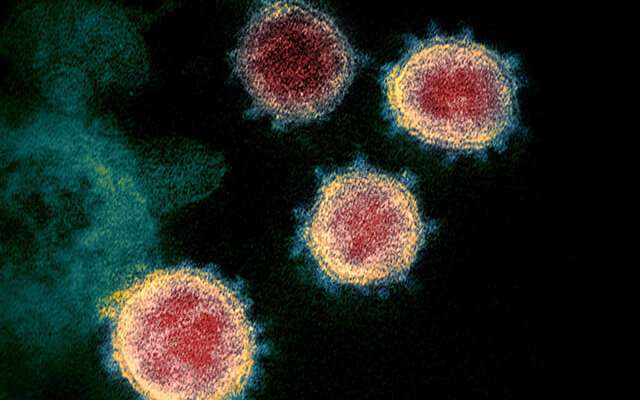
Genetic analysis of sequences from more than 27,000 individuals infected with the coronavirus that causes COVID-19 reveals that the virus has mutated minimally since December 2019, suggesting one vaccine would be sufficient to combat global infections.
The study was conducted by a team of scientists from the Walter Reed Army Institute of Research led by Morgane Rolland, chief of viral genetics and systems serology for the WRAIR Military HIV Research Program and Dr. Kayvon Modjarrad, director of the institute’s Emerging Infectious Diseases Program. A manuscript detailing the findings was published in Proceedings of the National Academy of Sciences.
To characterize SARS-CoV-2 coronavirus diversification since the beginning of the pandemic they aligned 18,514 independent virus genome sequences sampled from individuals in 84 countries and scanned them for variations. Analyses reveal low estimates of genetic differentiation following the initial outbreak, and indicate that, so far, the SARS-CoV-2 genome has evolved through a mostly random process rather than through adaptation to the human hosts it encounters.
“Like other reports, we noticed that the D614G mutation in the Spike has rapidly increased in frequency since the beginning of the epidemic, but we could not link this mutation to specific adaptive forces,” said Rolland. “When viruses replicate and spread in the population, we expect to see some mutations and some can become fixed very rapidly in an epidemic just by random chance.” Rolland noted that linking genotypes to phenotypes is complicated and more research is needed to fully understand the functional consequences of the D614G mutation in SARS-CoV-2.
Given the low level of genetic variation, a promising vaccine candidate would likely be equally efficacious against all currently circulating strains of the COVID-19 coronavirus.
“Viral diversity has challenged vaccine development efforts for other viruses such as HIV, influenza and dengue, but global samples show SARS-CoV-2 to be less diverse than these viruses,” said Rolland. “We can therefore be cautiously optimistic that viral diversity should not be an obstacle for the development of a broadly protective vaccine against COVID-19 infection.”
Modjarrad co-leads the institute’s COVID-19 response efforts, including the development of a vaccine against COVID-19. WRAIR’s leading vaccine candidate is built on a Spike Ferritin Nanoparticle platform and is expected to enter human testing before 2021. The vaccine is paired with a proprietary adjuvant that was also developed at WRAIR, the Army Liposome Formulation, to further boost the immune response.
“Scientists are working hard to accelerate the development of a COVID-19 vaccine that is safe and effective for the entire world, now and in the years to come. These data are critical to informing the field’s collective efforts in getting a vaccine that is rapidly scalable and universally applicable to all populations,” said Modjarrad.
He added, “Based upon WRAIR’s long experience developing vaccines for other viruses and recent work on coronaviruses, we have been able to move quickly to accelerate research efforts to combat this pandemic that has threatened global health and military readiness.” WRAIR was established 127 years ago to combat these types of health threats and has played a role in the development of nearly half of the vaccines in public use today.
Source: Read Full Article
